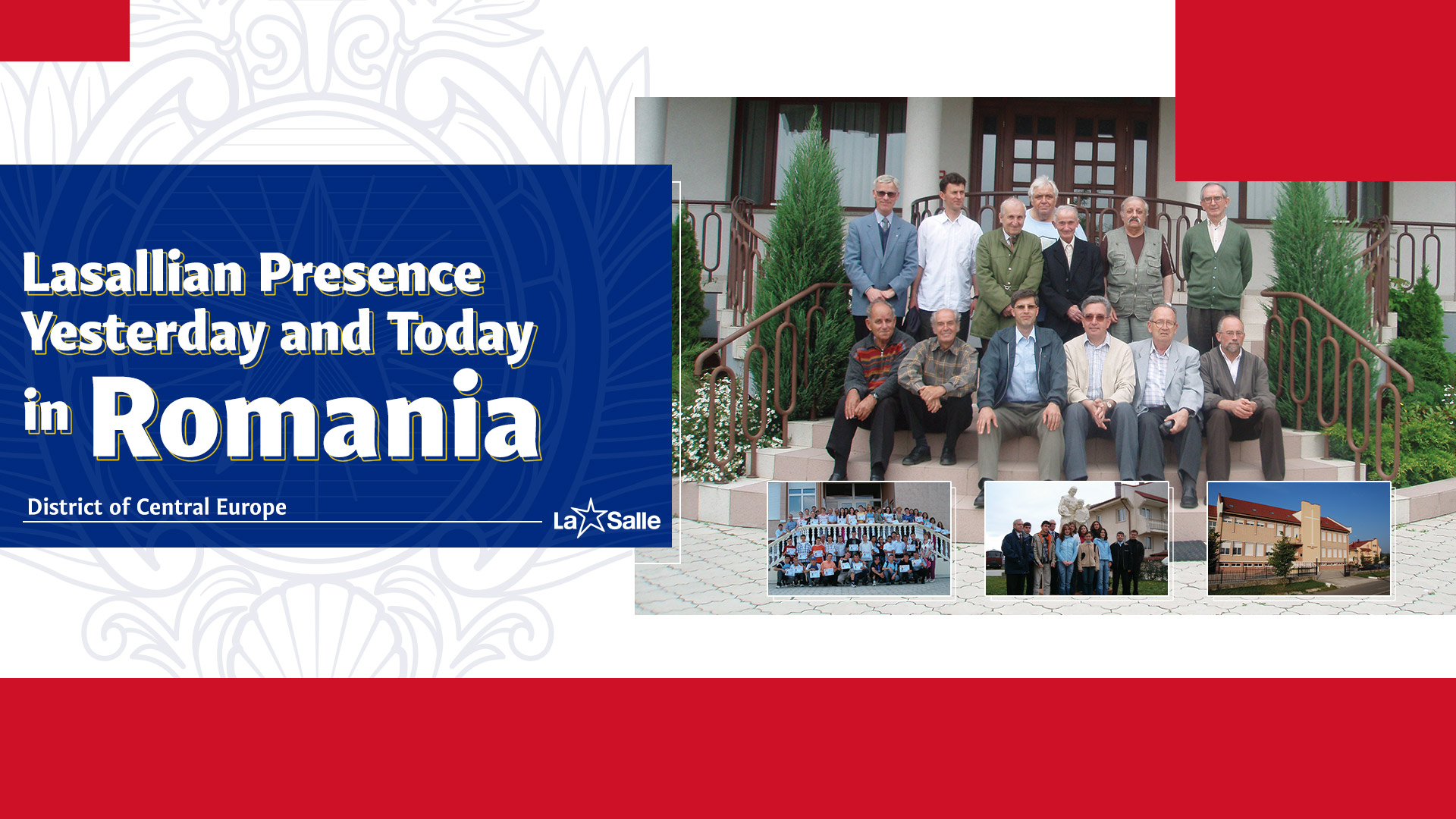On 20 September, Brother Juan Barrera returned to Spain after more than 30 years in Romania. He is one of twelve Brothers from the current Arlep District who have collaborated or continue to collaborate in this Sector of Central Europe.
The Brothers of the Christian Schools arrived in Romania in 1861, coming from Austria, but ten years later decided to withdraw. They returned in 1898, at the invitation of the Romanian hierarchy, and this time they stayed for good. This marked 125 years of uninterrupted Lasallian presence in Romania. During this time, the Brothers ran schools in Bucharest, Craiova, Braila, Satu Mare and Oradea; they also opened a Novitiate in 1940.
On 1 August 1948, the communist regime established in the country nationalised the faith-based schools. At that time there were 38 Brothers in the country, of whom nine were repatriated because they were of Austrian or German nationality. A year later, the Institute of the Brothers of the Christian Schools was the first on the list of religious congregations suppressed by decree. From then until 1989, many of the Brothers suffered imprisonment, forced labour and house arrest. They were freed in 1964, but were not allowed to live in community and each had to find a way to earn a living, always closely watched by the Securitate, the political police, who tried to make life as difficult and harsh as possible for them.
The communist nightmare began to decline in 1989: winds of change blew; the Berlin Wall fell and new prospects opened up for the countries of Eastern Europe. Seven Romanian Brothers survived implacable living conditions. Shortly afterwards, four of the five Brothers remaining in the country met Brother Superior General John Johnston in Vienna, asking for reinforcements from the then Arlep Region, which would send six Brothers.
The first three arrived in 1991 and another three joined a year later. A community was established in Iasi, which included Brother Tiberiu, the youngest of the survivors, a German teacher at the local seminary; another one in Oradea with three Romanian Brothers and in 1993 a third one in Pildesti, where the first Lasallian project of this new period was initiated: the La Salle socio-educational centre in Pildesti, which would be first a vocational school, then a school of arts and crafts, and finally, to this day, a technical high school.
The first concern of the Romanian Brothers and the newly arrived Spaniards was to attract Romanian vocations that would ensure the future; the response was almost immediate. The first were two young men, Daniel Ciobanu and Iosif Beda, who professed as Brothers in 1994, after being formed in Vienna and Iasi. Two years later, Brother Vicențiu Ghiurca followed in their footsteps.
Ever since the Brothers of Arlep joined the mission in Romania 32 years ago, they have been trying to understand what the needs of the men and women of a country so unknown at the beginning were, and to see what Lasallian response could be given to meet those needs. These concerns gave rise to the two projects that, until last December, were still in place in Romanian Moldova: the technical high school in Pildesti, built with solid financial support from the Spanish Ministry of Foreign Affairs, in operation since September 2001, and the Family-type Residence in Iasi, which until recently took in children and young people with social or family problems, and which is currently under review process.
Until these projects became a reality, the Spanish Brothers worked as Religion teachers in the State schools of Pildesti and Gheraesti, as professors at the diocesan Faculty of Didactic Theology for lay people, as trainers of catechists, animators of Catholic Action, the Scout movement, groups with families, etc.
There are currently three Romanian Brothers, one German and two Spanish Brothers actively serving in Romania. The Romanian Brothers who lived the communist experience died after a complicated but intense life, marked by faith and fidelity to the Lasallian charism.
Brother Vicențiu Ghiurca is currently the Visitor of the District and, as such, from Pildesti he animates and accompanies the journey of the District of Central Europe, which has Lasallian presences in Austria, Hungary, Slovakia, Romania and the Netherlands.




 Re: The original text in Spanish, written by Br Antxon Andueza, was published in the Arlep District magazine La Salle+ Allá -La Salle Beyond- January 2024 – no. 4).
Re: The original text in Spanish, written by Br Antxon Andueza, was published in the Arlep District magazine La Salle+ Allá -La Salle Beyond- January 2024 – no. 4).